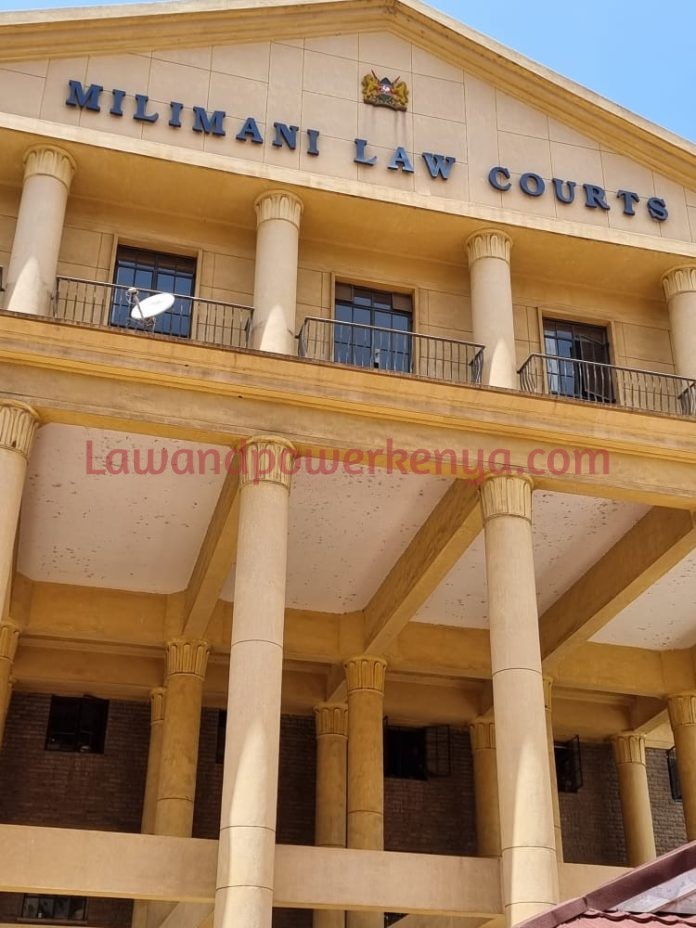The High Court in Nairobi has declared the Supreme Court (Presidential Election Petition) (Amendment) Rules, 2022 unconstitutional.
In her judgement, Justice Mugure Thande ruled that the rules were unconstitutional for want of public participation and for assuming the legislative power of Parliament.
“A declaration be and is hereby issued, that, the Supreme Court (Presidential Election Petition) (Amendment) Rules, 2022 are unconstitutional for usurping the legislative power of Parliament,” the judge ruled.
Justice Thande also declared that the Supreme Court (Presidential Election Petition) (Amendment) Rules, 2022 are not a statutory instrument within the meaning of the Statutory Instruments Act.
The judge further issued an order of certiorari quashing the said Supreme Court rules.
“An order of certiorari be, and is hereby issued, calling into this honourable Court the Supreme Court (Presidential Election Petition) (Amendment) Rules, 2022, for the purposes of their being quashed, and the same are hereby quashed,” Justice Thande added.
The petition was filed by lawyer Omwanza Ombati challenging the said rules which gag advocates from commenting on presidential election petitions pending the hearing and determination of the case.
Violation of rights
Omwanza challenged the process through which the impugned rules were conceived and imposed. He argued that the rules violated fundamental rights and freedoms.
ALSO READ:cj-koome-opposes-case-challenging-gagging-of-lawyers-in-presidential-election-petitions
“The impugned rules limit, violate and threaten with violation fundamental rights and freedoms contained in the Bill of Rights, including right to privacy, inherent dignity, fair administrative action and access to information, freedom of the media, thought, expression and conscience and freedom from discrimination,” Omwanza argued.
With the above, the judge found that the impugned rules are unconstitutional for want of public participation and further for the reason that in promulgating the said rules, the Supreme Court usurped the legislative powers of Parliament, the same cannot stand.
According to Judge Thande, “while it is accepted that the Supreme Court should be given the leeway and space to exercise the powers conferred upon it by the Constitution, such power must be exercised within the four corners of the Constitution and without usurping the powers of other constitutional entities.”
She, therefore, found that in making the impugned rules which contain a penal provision that is enforceable by the court, the Supreme Court went beyond its authority and usurped the law-making role of Parliament.
The judge said that in promulgating the impugned rules, the Supreme Court had a duty to facilitate meaningful engagement with the public in a manner that accords with the nature of the impugned rules.
“Such engagement should have included access to and dissemination of relevant information, providing reasonable opportunity to the public and all interested parties to know about the impugned Rules and to sufficiently ventilate the same even if no guarantee is given that each individual’s views will be taken,” the judge ruled.










